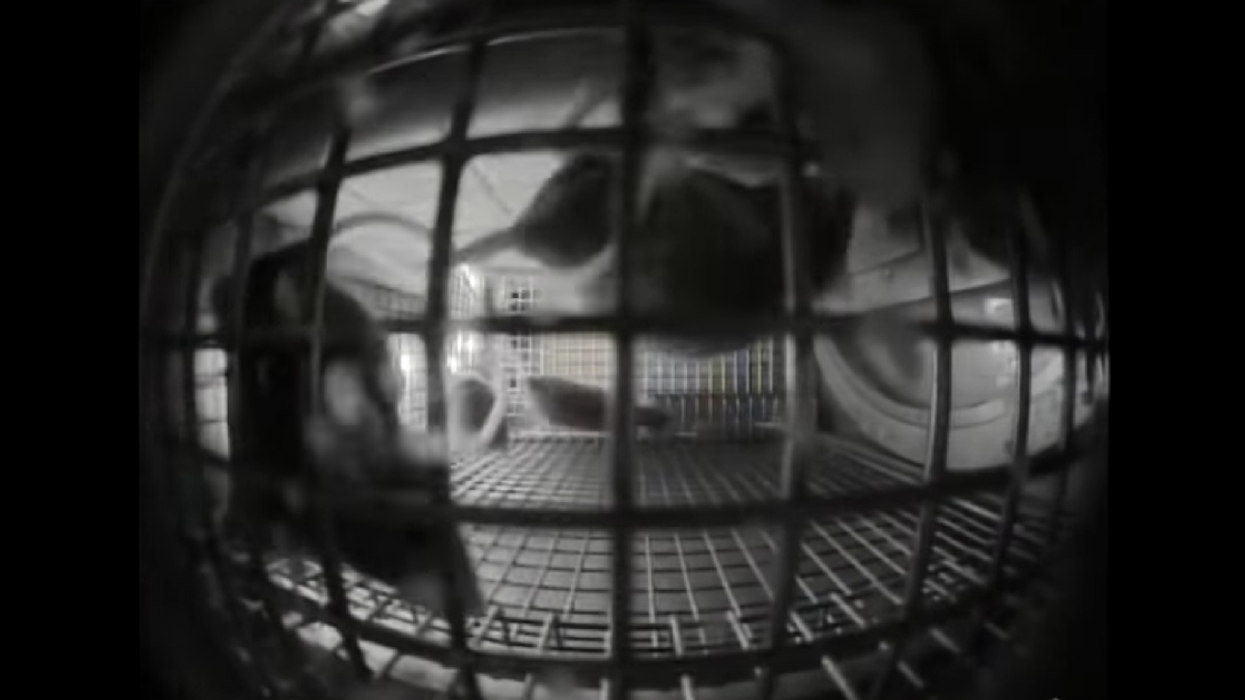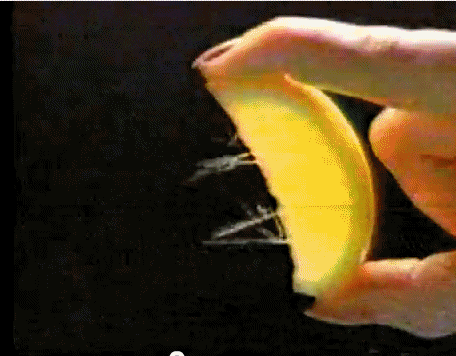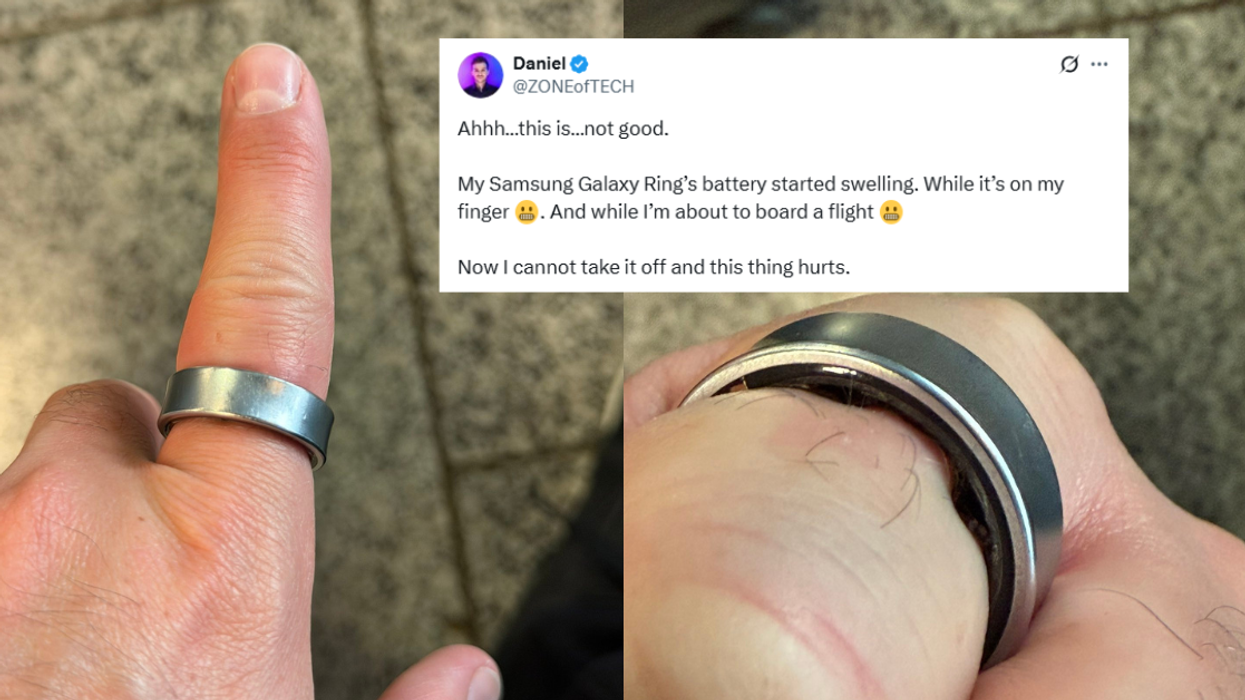Mice are the often unsung heroes of humans' scientific research. We use them as a proxy for our own species when researching how things might affect humans.
Obviously, we aren't mice, but their bodies are similar enough that they can tell us a lot about the safety of different medications or situations.
Mice also live shorter lives than humans, so they are excellent for testing the long-term effects of microgravity—like that experienced during prolonged space travel.
Humanity is getting closer and closer to taking a trip to Mars but, before we can make that idea a reality, we need to learn how being weightless for the amount of time it takes to get there will do to the astronauts that take the trip.
Rodent Research in Microgravitywww.youtube.com
In order to study how mice react to the microgravity of space, NASA designed a special enclosure to hold and observe mice on the International Space Station (ISS).
Called the NASA Rodent Research Hardware System, the enclosure had enough room for the mice to move around freely.
A researcher from NASA's Ames Research Center, located in Silicon Valley, talked about the enclosure
Studying Behavior in Space Shows Mice Adapt to Microgravitywww.youtube.com
Surprisingly, the mice didn't seem to mind being in space at all!
They did all of the same things that the control group of mice who stayed here on Earth did: grooming, eating, and interacting with the other mice in the enclosure (including adorable snuggle huddles—mice are very social animals).
They also did some things that the earthbound mice didn't, mostly because they couldn't. The space mice rapidly adjusted to the microgravity quickly, and some of the younger mice began doing what scientists called "race tracking."
They would run laps around the walls of the cage, eventually in groups!
Scientists aren't sure of the reason for these mousy jogging clubs, but they could be do to a few different factors.
It might be because the mice enjoy the physical exercise itself, like many human runners, or the motion helped stimulate the mice's sense of balance.
There is also the possibility that it is a stress response, but scientists think this is the least likely possibility. The mice were in perfect health, and didn't show any other abnormal behaviors.
Ronca commented on the importance of mouse research and the success of this initial study.
"Our behavioral study shows that the NASA Rodent Hardware System provides the capability to conduct meaningful long-duration biological research studies on the International Space Station."
"Experiments conducted in the habitat can focus on how mouse physiology responds to the spaceflight environment during extended missions and on similarities in response to astronaut crew."
Twitter users were excited by the study's results.
NASA is sending up another group of mice with the next cargo shipment to the ISS today!
If we really plan to make it to Mars, or even farther planets, these studies of the effects of being in space are vital. The ISS is too small to conduct a large-scale study on humans, and a sufficient number of samples are vital to understanding whether a reaction is a species-wide one or just an individual one.
These mouse studies are the first step in understanding the effects of space on bodies that are designed to exist with significantly more gravity.








 Lemon Juice 80S GIF
Lemon Juice 80S GIF  Michael Myers
Michael Myers  Give Thanks Eating GIF by I Heart Guts
Give Thanks Eating GIF by I Heart Guts  Gordon Ramsay Fox GIF by HULU
Gordon Ramsay Fox GIF by HULU  baking ann b. davis GIF by HULU
baking ann b. davis GIF by HULU 






 @timleesblee/TikTok
@timleesblee/TikTok @timleesblee/TikTok
@timleesblee/TikTok @timleesblee/TikTok
@timleesblee/TikTok @timleesblee/TikTok
@timleesblee/TikTok @timleesblee/TikTok
@timleesblee/TikTok @timleesblee/TikTok
@timleesblee/TikTok @timleesblee/TikTok
@timleesblee/TikTok @timleesblee/TikTok
@timleesblee/TikTok @timleesblee/TikTok
@timleesblee/TikTok @timleesblee/TikTok
@timleesblee/TikTok @timleesblee/TikTok
@timleesblee/TikTok @timleesblee/TikTok
@timleesblee/TikTok
 @skylr.m/TikTok
@skylr.m/TikTok @skylr.m/TikTok
@skylr.m/TikTok @skylr.m/TikTok
@skylr.m/TikTok @skylr.m/TikTok
@skylr.m/TikTok @skylr.m/TikTok
@skylr.m/TikTok @skylr.m/TikTok
@skylr.m/TikTok @skylr.m/TikTok
@skylr.m/TikTok @skylr.m/TikTok
@skylr.m/TikTok @skylr.m/TikTok
@skylr.m/TikTok @skylr.m/TikTok
@skylr.m/TikTok @skylr.m/TikTok
@skylr.m/TikTok @skylr.m/TikTok
@skylr.m/TikTok @skylr.m/TikTok
@skylr.m/TikTok @skylr.m/TikTok
@skylr.m/TikTok @skylr.m/TikTok
@skylr.m/TikTok